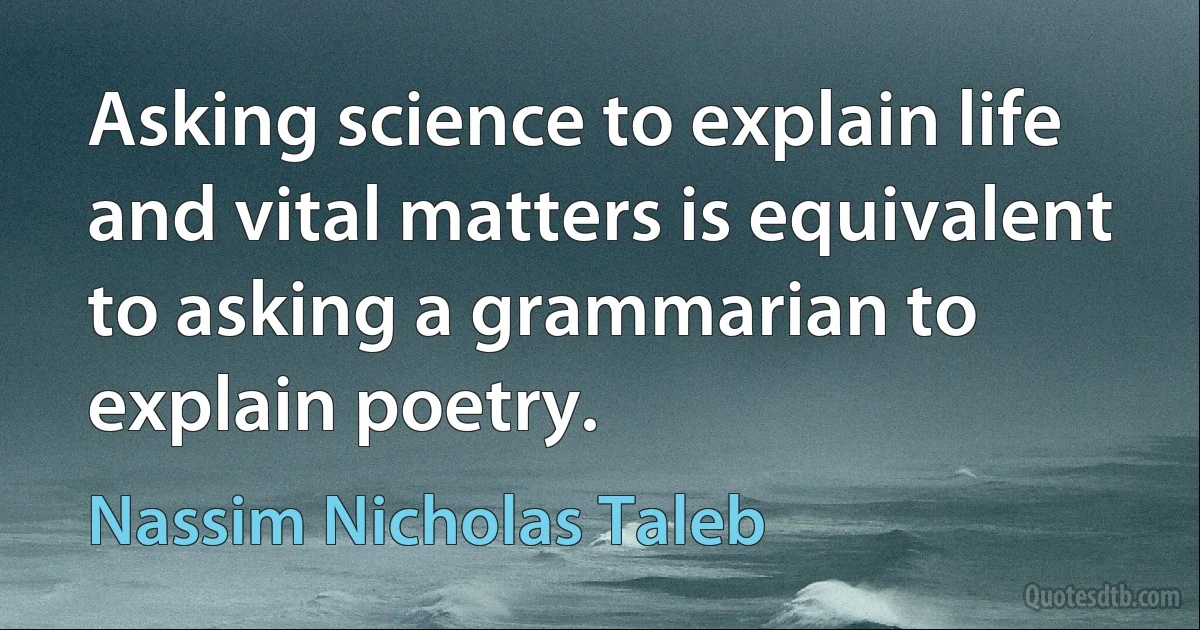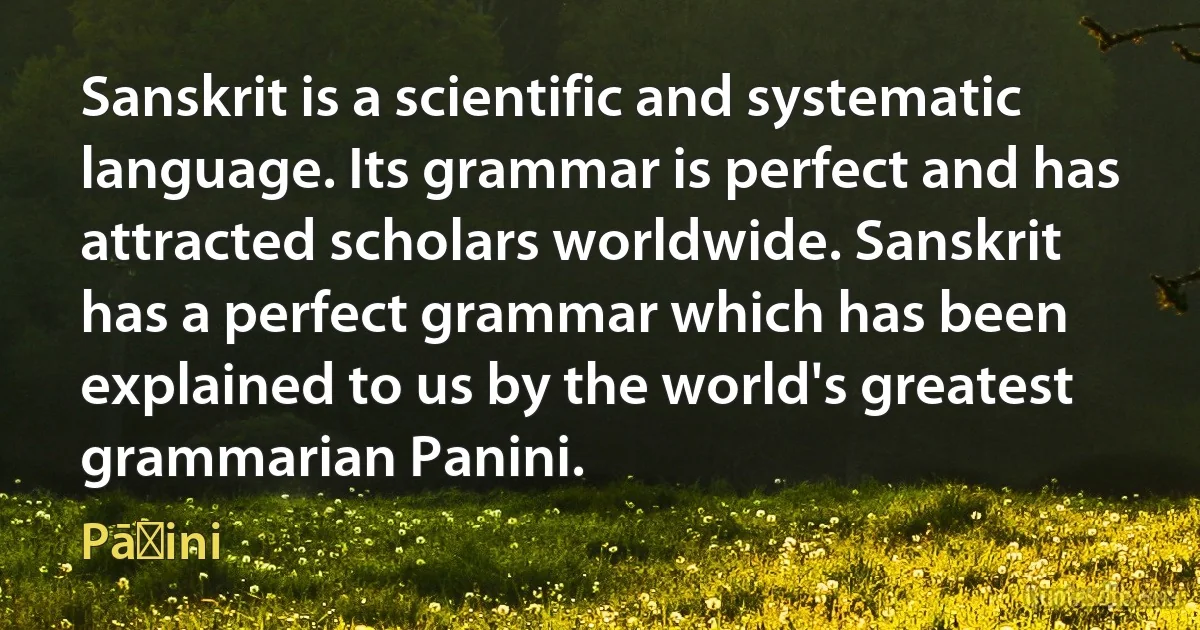Grammarian Quotes
Diogenes the cynic, seeing one of the so-called freedmen pluming himself, while many heartily congratulated him, marveled at the absence of reason and discernment. "A man might as well,” he said, "proclaim that one of his servants became a grammarian, a geometrician, or musician, when he has no idea whatever of the art.” For as the proclamation cannot make them men of knowledge, so neither can it make them free.

Philo
For a general semanticist, communication is not merely words in proper order properly inflected (as for the grammarian) or assertions in proper relation to each other (as for the logician) or assertions in proper relation to referents (as for the semanticist), but all these together, with the chain of 'fact to nervous system to language to nervous system to action.

Anatol Rapoport
Diogenes the cynic, seeing one of the so-called freedmen pluming himself, while many heartily congratulated him, marveled at the absence of reason and discernment. "A man might as well,” he said, "proclaim that one of his servants became a grammarian, a geometrician, or musician, when he has no idea whatever of the art.” For as the proclamation cannot make them men of knowledge, so neither can it make them free.

Diogenes of Sinope
Panini, the ancient grammarian (probably belonged to 5th century or sixth century BC) mentions a character called Vasudeva son of Vasudeva, and also mentions Kaurava and Arjuna which testifies to Vasudeva Krishna, Arjuna and Kauravas being contemporaries. Megasthenes (350-290 BC), a Greek ethnographer and an ambassador of Seleucus I to the court of Chandragupta Maurya mentioned about Herakles in his famous work Indica.

Pāṇini
The issue of theism vis-à-vis atheism, in the ordinary senses of the English words, played an important role in Indian thought. The ancient Indian tradition, however, classified the classical systems (darshanas) into orthodox (astika) and unorthodox (nastika). Astika does not mean "theistic,” nor does nastika mean "atheistic.” Panini, a 5th-century-BCE grammarian, stated that the former is one who believes in a transcendent world (asti paralokah) and the latter is one who does not believe in it.

Pāṇini
Classical Sanskrit theatre flourished during the first nine centuries CE. Aphorisms on acting appear in the writings of Panini, the Sanskrit grammarian of the 5th century BCE, and references to actors, dancers, mummers, theatrical companies, and academies are found in Kautilya's book on statesmanship, the Artha-shastra (4th century BCE).

Pāṇini
Ashtadhyayi Sanskrit treatise on grammar was written in the 6th to 5th century BCE by the Indian grammarian Panini. This work set the linguistic standards for Classical Sanskrit. It sums up in 4,000 sutras the science of phonetics and grammar that had evolved in the Vedic religion. Panini divided his work into eight chapters, each of which is further divided into quarter chapters, beyond defining the morphology and syntax of Sanskrit language.

Pāṇini
Panini was a Sanskrit grammarian who gave a comprehensive and scientific theory of phonetics, phonology, and morphology. Sanskrit was the classical literary language of the Indian Hindus and Panini is considered the founder of the language and literature. It is interesting to note that the word "Sanskrit" means "complete" or "perfect" and it was thought of as the divine language, or language of the gods.

Pāṇini
Somebody might have come along that way who would have asked him his trouble, and might have cheered him by saying that his notions were further advanced than those of his grammarian. But nobody did come, because nobody does; and under the crushing recognition of his gigantic error Jude continued to wish himself out of the world.

Thomas Hardy
The first part of South Asia to be cleansed of Hinduism was Afghanistan. The 10 th century saw a life-and-death struggle there between Muslim invaders and the local Hindu population and dynasty. In this case, the replacement was not just religious, of Hindus by Muslims, but also ethnic, viz. of Indo-Aryans by Iranians. The fact of an at least partial physical replacement of the native population by invaders is attested by the linguistic shift. Until then, in much of the present-day Pashtu-speaking region of Pakistan and Afghanistan, an Indo-Aryan Prakrit was spoken (remember how the Sanskrit grammarian Panini was a native of Peshawar). It was replaced with Pashtu, an Iranian language.

Koenraad Elst


